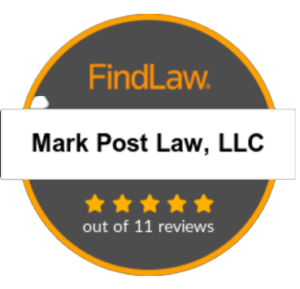Premises Liability
Free & Confidential Consultation: If we don’t win, you don’t pay a fee!
CALL US TODAY IF YOU ARE INJURED IN A FALL OR DUE TO NEGLIGENT SECURITY- WE WILL EXPLAIN YOUR RIGHTS AND MAKE SURE YOU GET FULL COMPENSATION!
Understanding Premises Liability Claims
- NEGLIGENT SECURITY – When a Commercial Establishment Like an Apartment Complex, Gas Station, or Hotel Fails to Keep You Safe
Georgia law requires owners of land, including apartment and business owners, to make sure their property is safe for the people on it. Too often, apartment complexes, hotels, and convenience stores care more about their bottom line than creating a safe place for tenants, occupants, and shoppers. This is particularly true in high crime areas whether in Columbus or other areas. We have handled cases involving death and permanent injuries where gates are down, swimming pools are left unguarded, and lighting is inadequate, giving an opportunity to bad actors to harm innocent people. These cases are referred to as “negligent security” cases, and there is a growing body of law in Georgia defining the rights of tenants and customers and the duties of landowners. If you or a loved one are injured or killed by a criminal or negligent act as a customer or tenant, call us to know what you need to do in these serious cases.
- SLIP AND FALL
People sustain terrible injuries when they slip and fall unexpectedly. Such falls can lead to the need for surgery and can have a permanent impact on your life. Too often, slip and fall personal injury claims are not given the time and attention they deserve. Businesses are required by clear Georgia law to keep their property safe for the people that go onto their property. Unfortunately, many businesses ignore their duties and maintain or create hazardous conditions that a reasonable person cannot anticipate. It is key that the area where you fell is photographed, that video of your fall is preserved, and that the witnesses and employees who know about your fall are interviewed. Putting businesses on notice of your claim is a critical part of these cases, as businesses and their insurers often rush to destroy evidence that supports your case or fail to have procedures in place to safeguard such evidence. We have handled slip and falls in Columbus and this area with a focus on claims involving serious injury and surgery. Call us about your rights when you slip and fall down and do not be confused or intimidated by calls made by insurers after these claims in an attempt to settle your case before you understand both your rights and their legal duties.
BRIEF OVERVIEW OF GEORGIA SLIP AND FALL LAW
Actual and Constructive Knowledge
In order to recover in a premises liability action against an owner, a plaintiff must establish “(1) the defendant had actual or constructive knowledge of the hazard; and (2) the plaintiff, despite exercising ordinary care for his or her own personal safety, lacked knowledge of the hazard due to the defendant’s actions or to conditions under the defendant’s control.” Fairview Park, Ltd. P’ship v. Roddenberry, 364 Ga. App. 247, 249, 874 S.E.2d 408, 411 (2022).
Thus, the key question in a slip and fall case is whether or not the owner or the customer had knowledge of the dangerous condition. There are different types of knowledge an owner can have. One is “actual knowledge”, which is what it sounds like – that a store or business owner actually knew about the dangerous condition that caused you to fall. However, you can also prove “constructive knowledge” on the part of an owner or occupier of land.
Constructive knowledge can be established in one of two ways: (1) by evidence that employees were in the immediate vicinity and easily could have noticed and removed the hazard, or (2) by evidence that the substance had been on the floor for such a time that (a) it would have been discovered had the proprietor exercised reasonable care in inspecting its premises, and (b) upon being discovered, it would have been cleaned up had the proprietor exercised reasonable care in its method of cleaning its premises.
So, for instance, if a baby is being pushed in a shopping cart and spills yogurt on the floor, and you slip in it just a few seconds after the spill, there arguably was not enough time for a reasonable owner to locate and correct the condition. However, if the spill happened and was left on the floor for a long period of time, the owner can be deemed to have “constructive knowledge” of the dangerous condition, as the store or its employees should have noticed the condition and either cleaned it up or placed warning signs around it.
Constructive knowledge also may be inferred when there is evidence that the owner lacked a reasonable inspection procedure. Many stores either (a) have a procedure but do not follow it; or (b) do not have a procedure at all. If they do not have a procedure at all, then they are taking no safeguards to protect their customers from dangerous condition, and are deemed to have constructive knowledge of a hazard that causes you to slip and fall.
Types of Defects
The type of object or substance you fall on is very important in a slip and fall case, because different laws can control depending on what caused you to fall. The two most basic types of falls are on (a) foreign substances and (b) static conditions.
A. Foreign Substances
“A plaintiff who alleges she slipped on a foreign substance must present some evidence of a foreign substance on the ground where she slipped.” Luckett v. Sparkles of Gwinnett, Inc., 363 Ga. App. 462, 464, 871 S.E.2d 463, 465 (2022). A fall alone is not enough to prove that a landowner is liable for a fall – you must be able to point to what caused you to fall. In foreign substance cases, there is often evidence that clothing was wet after a fall, or that a pipe or freezer was leaking.” The proof of the foreign substance on the floor can come from your testimony, eyewitness testimony, and from video and photographs. Often you need to file a lawsuit to determine the source of a foreign substance – for instance, you can discover evidence as to whether or not had the floor waxed the night before, or had called in a company to work on a leak, or replaced ceiling tiles due to a leak.
“To prove negligence in a slip and fall premises liability case, the plaintiff must show (1) the defendant had actual or constructive knowledge of the foreign substance, and (2) the plaintiff lacked knowledge of the substance or for some reason attributable to the defendant was prevented from discovering it.” Hutchins v. J. H. Harvey Co., 240 Ga. App. 582, 584 (1), 524 S.E.2d 289 (1999). Again, knowledge is critical. If you see a puddle on the floor that is clearly visible, and then step into it, your case will be highly difficult. If the substance is very difficult to see (like clear water or a sheen of wax), then you could not have discovered it in the exercise of ordinary care, and the owner is presumed to have superior knowledge of the hazard that caused you to fall.
B. Static Defects
Static defects, or defects that remain the same (like a curb in a parking lot) are treated differently than defects involving foreign substances. Cases involving static defects are more difficult to prove under Georgia law. Claims involving a static defect differ from other slip and fall cases in that when a person has successfully negotiated an alleged dangerous condition on a previous occasion, that person is presumed to have equal knowledge of it and cannot recover for a subsequent injury resulting therefrom. Trans-Vaughn Dev. Corp. v. Cummings, 273 Ga. App. 505, 508, 615 S.E.2d 579, 582 (2005). Thus, if there is evidence that you have walked over a dangerous condition, and then fall later on the same condition, you can be deemed to have equal knowledge of the hazard.
Cases involving static defects must be carefully examined. What appears to be a static defect is not always one. For instance, Georgia cases have held that going up a flight of stairs can pose a different danger than the one encountered going down a flight of stairs. Also, you must have knowledge of the precise dangerous condition when you first encountered it. Insurers and storeowners often try to make static defect law apply when it should not. This is why your testimony, witness testimony, and photographs and video are so important. If you hear an insurer say, well you walked over it once, you can’t win, do not take this claim at face value. Often conditions change after they are encountered the first time.
We know how to help you navigate this difficult law and win, even under difficult circumstances.







